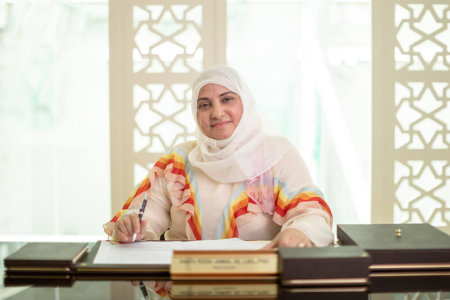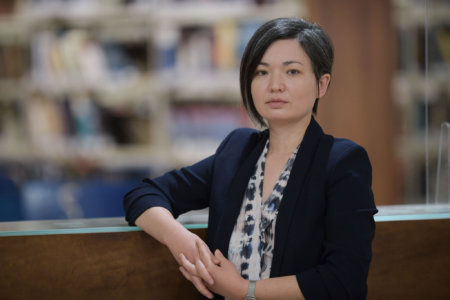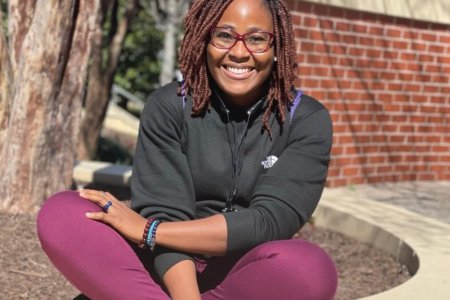
Anas Alrejjal, recipient of one of the sought-after PhD scholarships in the US, is using research to crush the number one cause of deaths today: vehicle accidents. The doctoral candidate at the University of Wyoming studies traffic safety, traffic engineering, transportation planning, traffic analysis, geometric design and transportation analytics.
He has professional experience supervising several highway projects and leading transportation events at the University of Wyoming. Recently, he also won another award for his work in transportation research. Where does his passion for transport research come from? From witnessing many crash accidents back in his home country, Jordan.
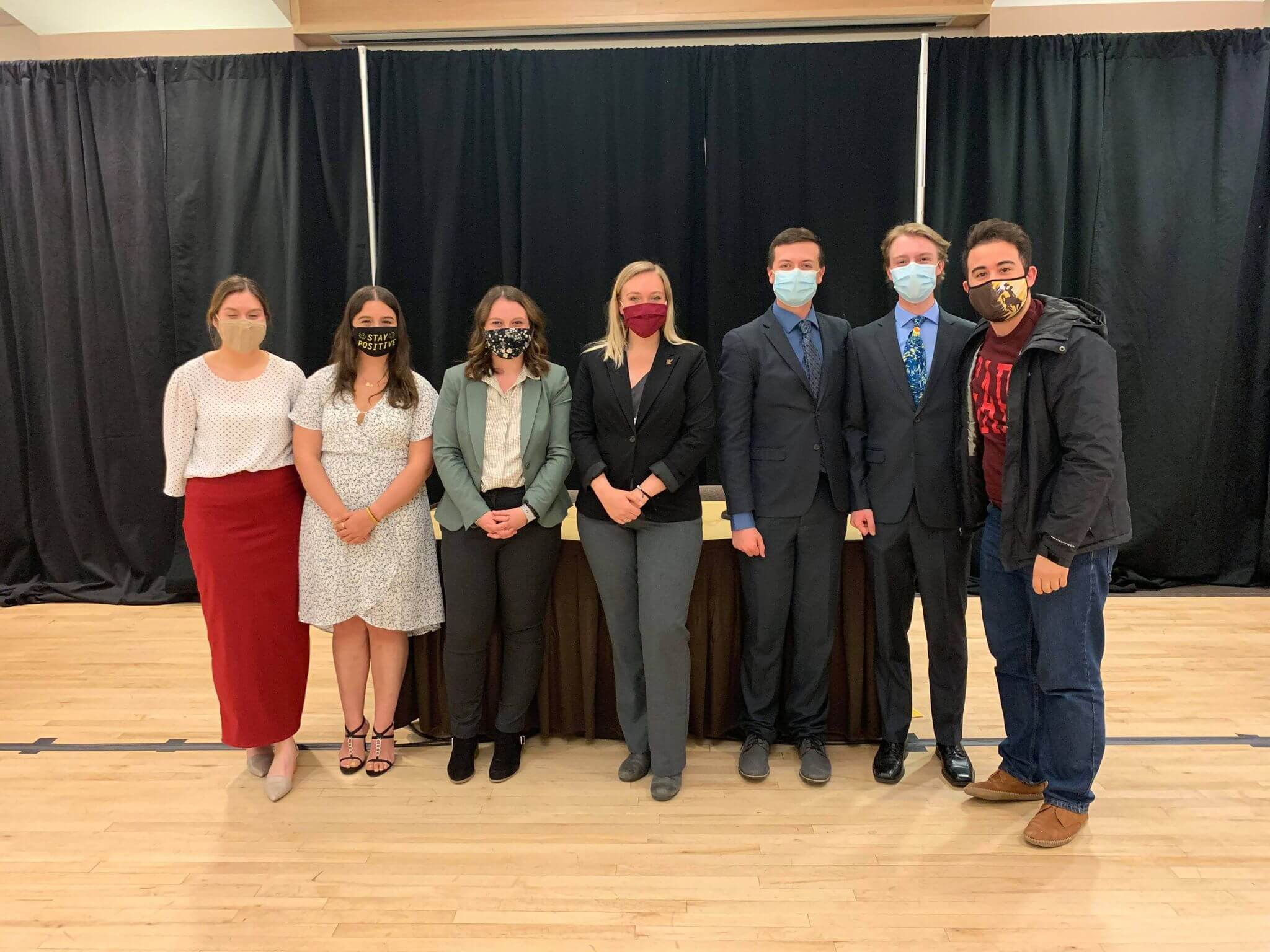
The doctoral candidate at the University of Wyoming studies traffic safety, traffic engineering, transportation planning, traffic analysis, geometric design and transportation analytics. Source: Anas Alrejjal
When he is not making roads safer, he’s helping international student settle in and thrive in the US. One of his roles as the senator of the Associated Students of the University of Wyoming is to conduct extracurricular activities to support mental health.
In between his work with crash data reporting systems, speed limits in mountainous areas, and the effects of adverse weather conditions, Alrejjal caught up with us to share his research, projects and advice for international students.
Is there a personal backstory behind your passion for transport research?
I started working in transport engineering (a branch of civil engineering) in Saudi Arabia for about two and a half years and my interest began when I witnessed a lot of crashes and fatalities in Jordan.
It was a big issue for me which made me want to enhance traffic safety so I started thinking about doing my postgraduate and PhD programmes abroad.
What made you choose the University of Wyoming in particular? How did you search for PhD scholarships in the US?
This is a good question. So, when I was looking for my dream PhD programme, I started looking at many different unis and PhD scholarships in the US. I also looked at getting a full scholarship with my supervisor and the University of Wyoming also stood out with its department of transportation.
With these funds and research opportunities available (since it’s a state one), it drew my attention. The state of Wyoming really wants as many researchers as they can so that’s why there are many grants and scholarships available. It’s like being a big fish in a small pond.
I’m also a principal investigator and have recently secured a US$300,000 grant to enhance the crash reporting systems at the Wyoming Department of Transportation. As a PhD candidate with these projects under my name, it makes me stand out when I go for job interviews.

“I tell these to students back in Jordan that want to come to the US: make an effort and don’t take it for granted,” Alrejjal advises prospective international students. Source: Anas Alrejjal
Tell us more about your PhD and research assistant role at the University of Wyoming. Walk us through winning the Student of the Year award.
I got the Student of the Year award for different kinds of things. They focus on your research and leadership skills. As I secured a grant to work with the highway patrol and I’m also senator for the student government, it’s made me stand out as a student.
So for all these engagement activities, I was nominated by different professors for Student of the Year award which feels very prestigious. Just last semester, we lost three students because of adverse weather conditions (especially during winter with slippery roadways).
Because of this, I’ve done some campaigns with the highway patrol to raise awareness on how to drive on these roads. During a week, we tried to educate the students on the idea of road safety. I came to this field not just to get a PhD but more of a sense of purpose in life. I aim to eliminate the number of crashes on our roadways.

“I’m also a principal investigator and have recently secured a US$300,000 grant to enhance the crash reporting systems at the Wyoming Department of Transportation,” he says. Source: Anas Alrejjal
How do you use the knowledge and skills gained at the University of Wyoming in your current role?
I’ve done a lot of simulations, as we have a simulator at the University of Wyoming, where we create scenarios trying to reflect real-world situations. We calibrate variable speed limits which change continuously based on weather conditions.
So, I use my knowledge to estimate the speed limit according to the width and length of the crosswind’s speed and direction. With all this, I’ve developed many methodologies and models to bring them together and make sense of them.
We do have heavy traffic here which means a crowded interstate. One of the longest roadways in the US is from New York to California and the heavy traffic is usually from trucks and semi-trucks.
These vehicles are really dangerous because of their heavy loads. One of the things I look at is how to prevent vehicle stability problems like skidding and rollovers because Wyoming has mountainous terrain (lots of horizontal caves and steep downgrades).
What were the practical learning elements during your uni time?
Now the Department of Transportation in Wyoming is using the models of transport research I’ve worked on. The whole process of creating a guideline where I revise formulas on roadways and curves in the US is something I use now.
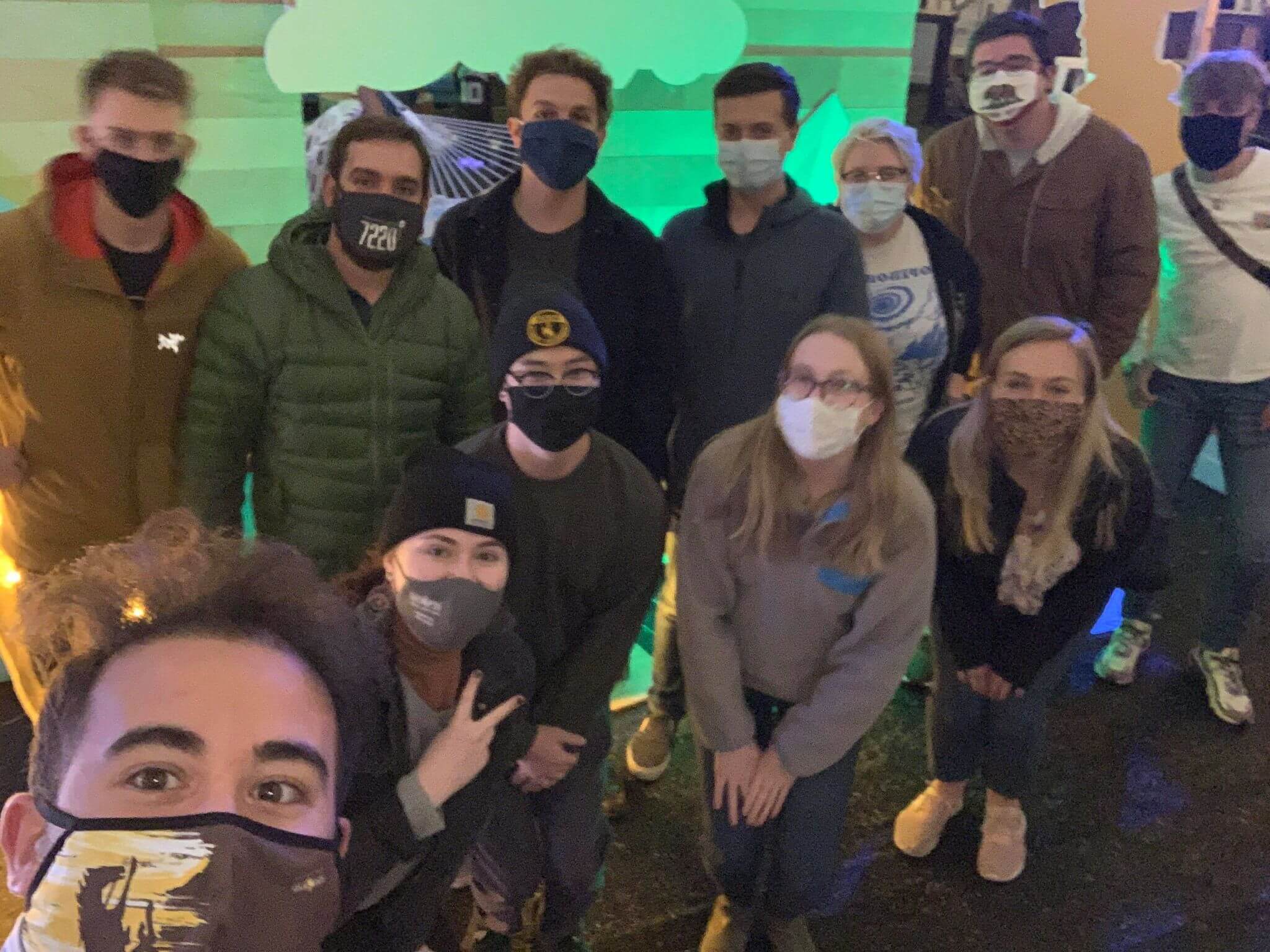
“I’m also a principal investigator and have recently secured a US$300,000 grant to enhance the crash reporting systems at the Wyoming Department of Transportation,” he says. Source: Anas Alrejjal
I have to consider factors such as vehicle configurations and different data types. What I really like about transportation is that day-by-day you’re trying to eliminate the number of crashes that affect people’s lives. The number one killer in the world is vehicle crashes.
What do you wish you learned more during uni?
To gain more in-depth knowledge in coding, the language of programming. Having more experience in it would have been helpful.
For instance, knowing more about machine learning algorithms especially with image processing would have helped me a lot right now. One of the coolest projects we’ve done so far is to have sensors track your eyes while you’re driving so it can detect how many seconds until you’re distracted by something.
Any advice for international students planning to study in the US?
As I’m involved in the international student office, we try to do all different types of orientations for the arriving students especially if they’re in engineering. When they come, we try to give them advice that save them a lot of time not knowing what to do.
One thing I’d recommend is to have a supervisor you can communicate with. You should be very comfortable to a point where you can voice out whatever doubts or problems you have.
In Wyoming (where the accent is sometimes harder to understand), you should always communicate anything you’re struggling with. Especially if you’re coming from a non-English speaking country.
As long as you’re getting the grammar right, don’t focus on trying to speak with an American accent. Another thing would be to take some initiative and really get involved with the local and uni community — something that helped me practice my English.
To stand out, cultivate your skills as early as during your bachelor studies. Don’t just spend time in the library trying to perfect your GPA. Culminate skills in things like presentations and how to write technical reports or an email.
I tell these to students back in Jordan that want to come to the US: make an effort and don’t take it for granted. Prepare to get experienced in the practical side of a professional life and don’t isolate yourself from the community.
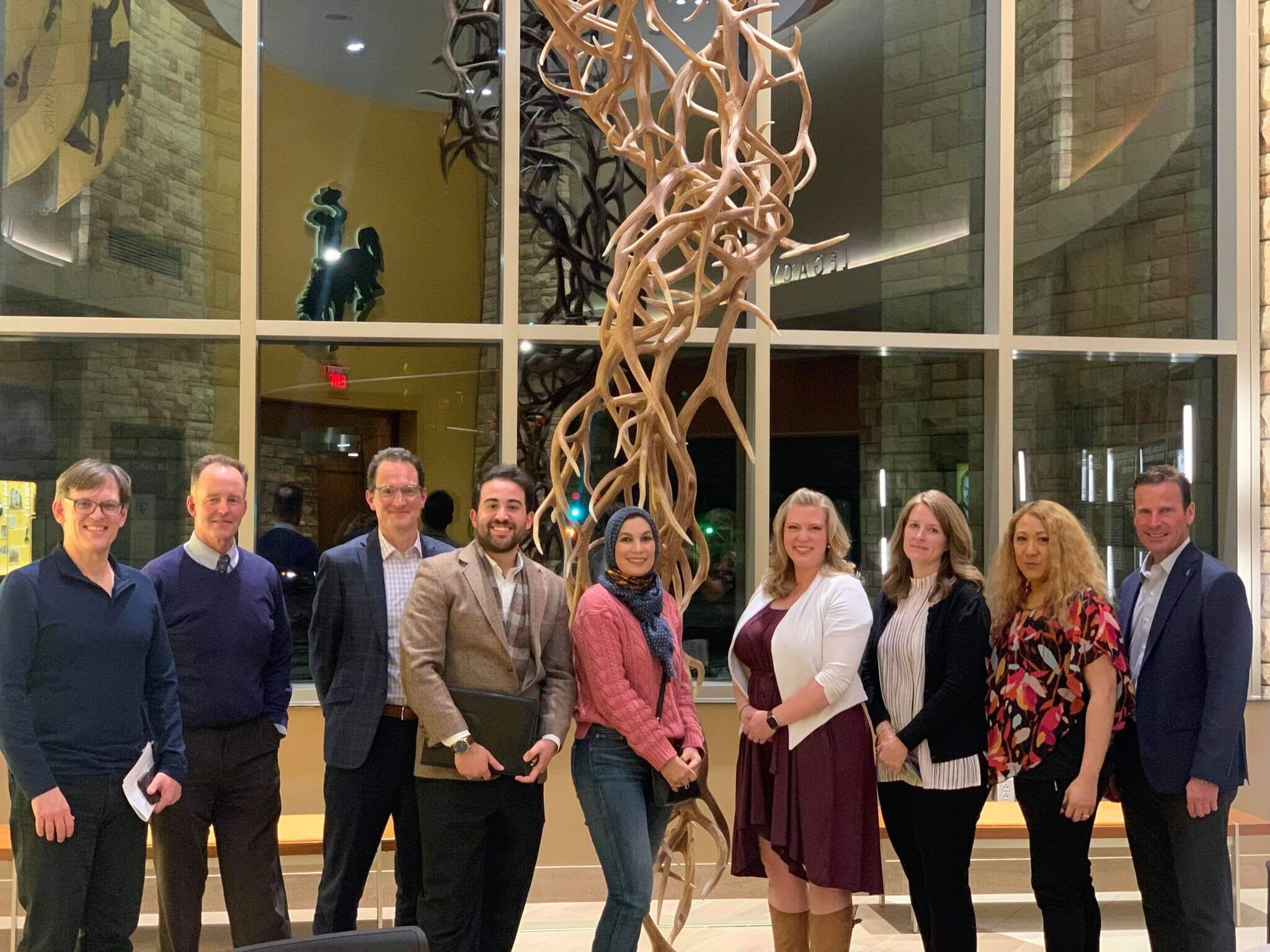
“Now the Department of Transportation in Wyoming is using the models of transport research I’ve worked on,” Alrejjal says about his hard work. Source: Anas Alrejjal
Besides engaging with the local community, how else do you welcome international students?
Mental health support is important especially during COVID-19. We want to make sure international students know we’re here to listen and support since lockdowns and families being so far away can be depressing.
Some of the things we do include cardio sessions in the morning, competitions, and tournaments. Besides games, we also have therapeutic things like spending time and hugging the uni’s mascot pony. We also have sheep, cats and dogs for emotional pet support.
It’s a more holistic approach of looking at things. There are also sessions where we get students to draw and paint.
Where do you envision yourself in 10 years?
I have multiple goals but one of them is to enhance traffic safety. I’m a big activist and I love educating people when they’re trying to choose their fields after graduating high school.
I’m a big activist and I enjoy educating people when they have to face decisions like choosing fields after graduating high school. I’ve had a lot of undergrad students working with me on projects because I want them to know the difference between a practical and critical life.
Since we live in a competitive world, it’s important to give this sort of guidance to the younger generations. This is also something I want to continue.
What do you miss from home?
I miss a lot of things! Firstly, the food. In Jordan, we have a popular and traditional dish called “mansaf” (rice dish with lamb meat in a fermented dried yoghurt sauce).
I actually brought my spices to the US because I’m a really good cook. When I came here, I used that as a way to communicate with people by preparing my home country’s cuisine for my neighbours.
The second thing I miss is friends because it was very hard initially to build relationships. But after I opened up and started sharing my stories and ideas, it really helped. I like to participate in social events (although challenging during a pandemic).








